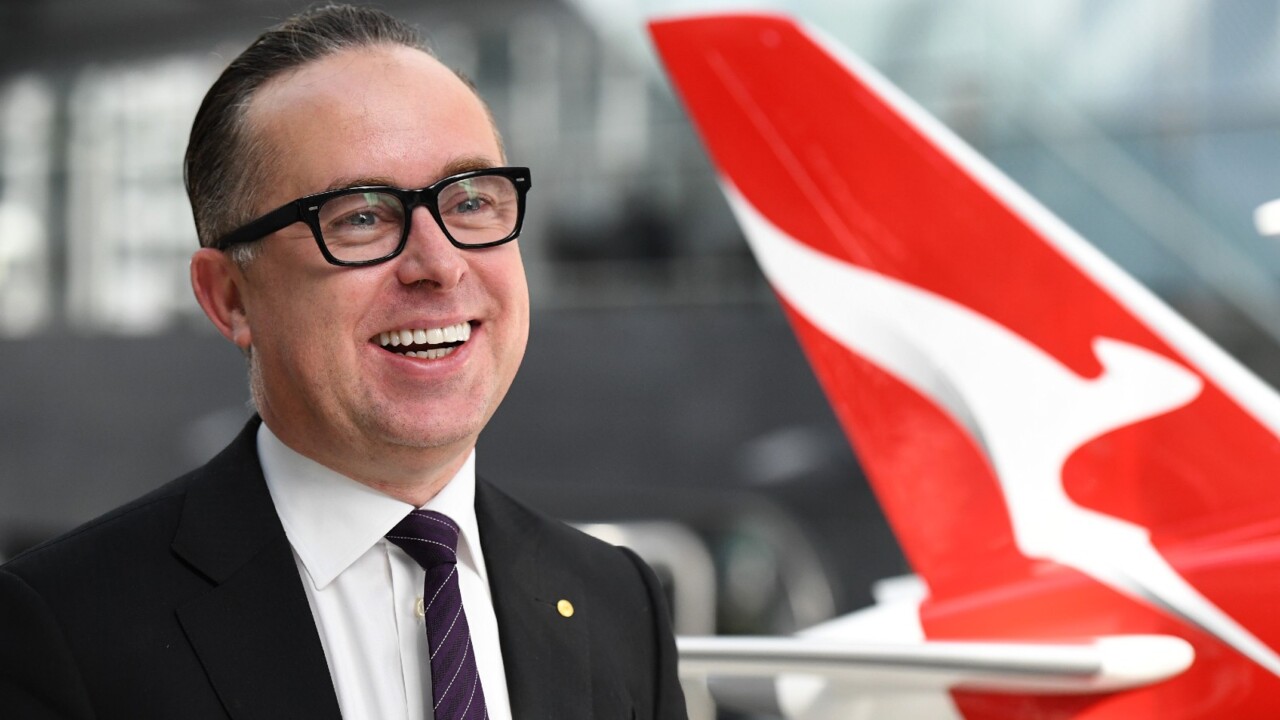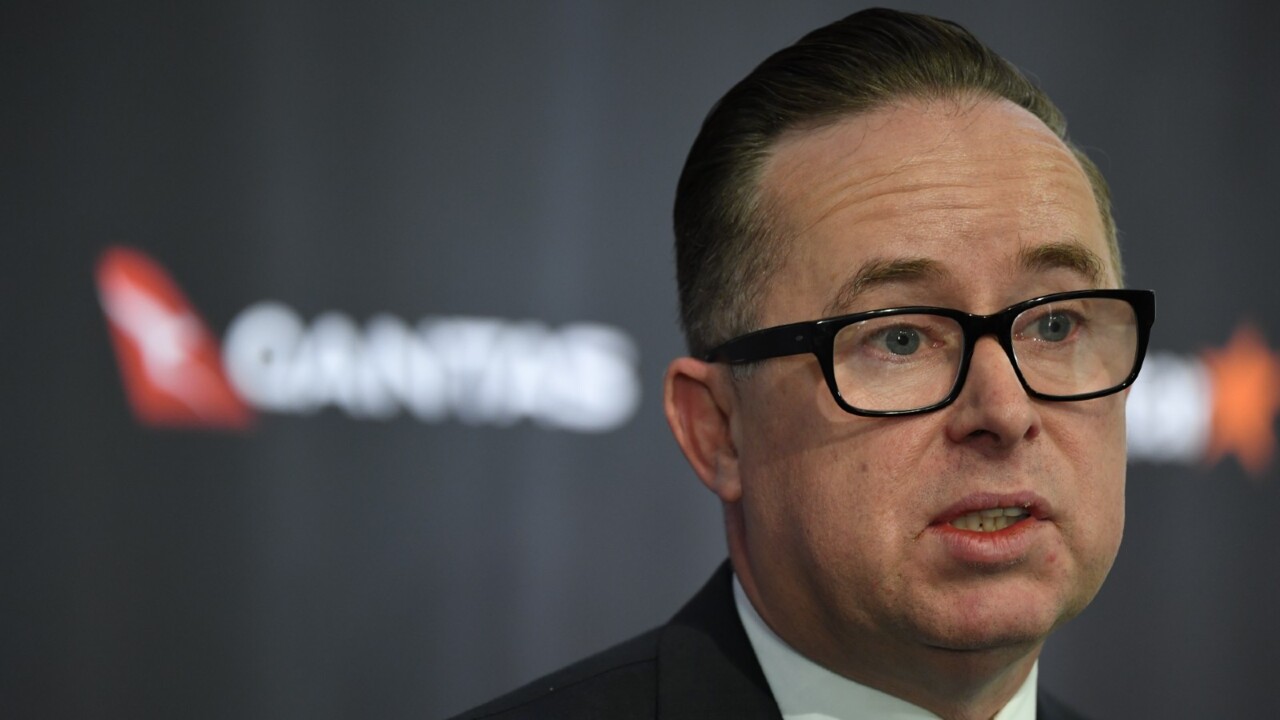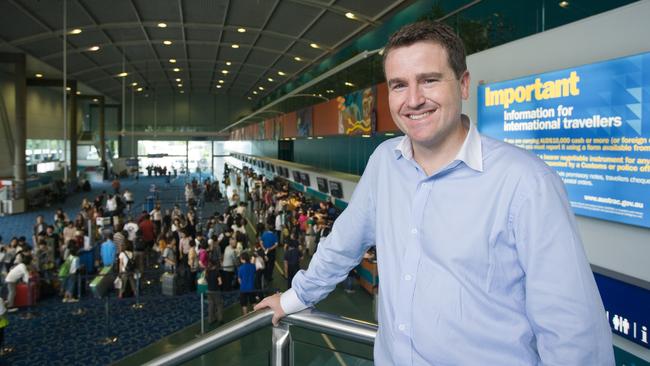Dictator or diplomat? Former colleagues of Alan Joyce recall the leader they knew and respected
Alan Joyce’s management style has cost him about $9m in bonuses following a corporate governance review by Qantas but is that fair or unfair?

Business
Don't miss out on the headlines from Business. Followed categories will be added to My News.
Wage freezes, strongarm industrial tactics and illegal outsourcings may not have endeared Alan Joyce to unions during his time at Qantas, but former chairman Leigh Clifford hit back at widespread criticism of the former airline boss.
A scathing corporate governance review described Mr Joyce as having a “command and control” leadership style and “top-down culture” at the aviation giant.
But Mr Clifford, a former Qantas chairman who worked alongside Mr Joyce for 11 years, said he had “a high regard for Alan’s management style” in what was a challenging industry.
“It’s not a place for pussycats,” Mr Clifford said.
“What I saw was a very capable, decisive and intelligent person who understood the airline industry … and he was certainly capable of making tough decisions, and sometimes that’s what’s needed with leadership.”

Far from being “in thrall” of Mr Joyce, as the review suggested of the board led by Richard Goyder, Mr Clifford said they had a mature relationship”.
“He had strong views but so did a lot of other people, and he was very decisive, but he gave people an opportunity to contribute,” Mr Clifford said.
“When we had to choose a new CEO (in 2008), Alan was a standout, there was no doubt about it, and I’d interviewed people in Australia and overseas.
“I can’t speak about the last six years, I only observed from afar, but I think he was a very capable leader and he was respected by his team and by investors.”

Corporate relations executive Simon Westaway, who worked with Mr Joyce for four-and-a-half years when he was the chief executive of Jetstar, recalled a “strong leader, who was very driven”.
“Jetstar would not have got to the position it got to without Alan’s leadership in those incredibly important early years,” Mr Westaway said.
“There’s a lot of those Monday experts who sit on the sidelines and say ‘well Qantas would never have let Jetstar fail’ but I completely disagree with that analysis, having been inside it. I can tell you we drove that business very hard.”

Another former executive who did not want to be named said he was constantly impressed by Mr Joyce’s intelligence and his ability to recall figures and fine details with complete accuracy.
He said if you were competent enough to gain Mr Joyce’s trust, he would ask for your opinions.
But he was not without surprises, and he recalled a function where, when asked what his “least favourable trait was”, Mr Joyce said “I don’t act on poor performers fast enough”.
“At that stage there were members of the group management committee everyone knew shouldn’t be there. He did eventually act,” the source said.
Whether Mr Joyce stayed too long or became too confident in his own abilities was a matter of conjecture, however Qantas insiders suggested the Covid-19 pandemic led to a change in his management style.
As border restrictions changed by the hour within Australia, decisions were being made fast and furiously, and that approach continued when the health crisis eased, to Qantas’s detriment.
As the corporate governance review suggested, some of those decisions should have been more closely examined, particularly by the board — but it was the chief executive who was considered “ultimately responsible” for the reputational damage.
In response, Mr Joyce’s long and short-term bonuses in his final year at Qantas were docked by $9.3m, reducing an expected $11.1m reward to $1.8m.
“I think he was in the chair for a long time and that brings its own changes in people, but it’s pretty hard to argue there weren’t large levels of success,” Mr Westaway said.
More Coverage
Originally published as Dictator or diplomat? Former colleagues of Alan Joyce recall the leader they knew and respected





